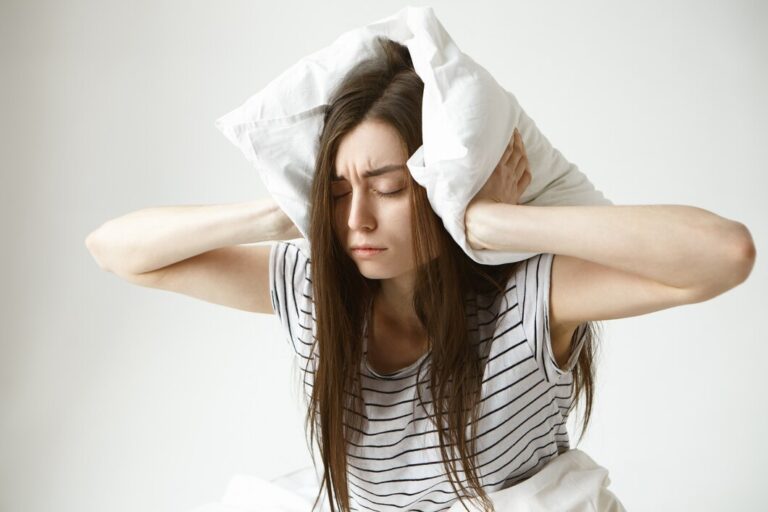Sleep is a natural process and so disorders can be a real pain, quite literally.
These involve problems with
- Quality
- Timing
- Amount of sleep
which often result in distress and impaired functioning during the day.
Sleep disorders are usual accompaniment of other medical conditions or mental health disorders, such as depression, anxiety, or cognitive disorders, but may even occur separately also. Sleep difficulties are often connected to both physical and emotional problems. Many people have trouble sleeping from time to time due to stress, busy-ness, and other outside factors. However, if these issues start happening regularly and get in the way of normal life, they may be signs of a sleep disorder.
There are various types sleep-wake disorders like sleep apnea, parasomnias, narcolepsy, restless leg syndrome and insomnia (most common sleep disorder).
Some types of sleep disorders make it hard to fall asleep, and people may feel very tired during the day. Not getting enough sleep can affect energy levels, mood, focus, and overall health.
If you think you might have a sleep disorder, it’s important to get a diagnosis and treatment right away. Sleep disorders can have serious health consequences if they’re not treated. They can also affect your performance at work, cause problems in your relationships, and make it hard to do everyday activities.
Types of Sleep Disorders:
Insomnia: it can present as
- Difficulty in falling asleep (problems with sleep initiation)- spending a lot of time awake on bed before finally falling asleep. This can be accompanied with restlessness, anxiety, overthinking and may also cause frequent trips to the washroom.
- Frequent night time awakenings- in this case it is difficult to stay asleep for more than 2-3 hours in a stretch and so overall sleep quality remains poor
- Early morning awakening- much earlier (usually 2-3 hours prior) than the usual waking up time
Whatever be the issue with your sleep, the eventual consequence is poor overall quality and quantity of sleep and may cause problems the next day like irritability, headaches, poor focus and concentration etc
There are multiple causes of sleep disorders like poor lifestyle and dietary habits, stress and anxiety, hormonal changes, physical causes like pain or It could also be a sign of an underlying mental health problem.
Insomnia needs to be treated for overall health and quality of life otherwise it may cause several other issues like:
- Depression and anxiety
- Poor focus and concentration
- Irritability
- weight gain
- Impaired work or school performance
Sleep Apnea: Sleep apnea is a serious medical condition where your breathing pauses during sleep. This condition causes the body to take in less oxygen and can cause you to wake up during the night. If you think you might have sleep apnea, it’s important to talk to your doctor about it.
- Obstructive sleep apnea: occurs when the flow of air is obstructed or the airway space is too narrow.
- Central sleep apnea :happens when there is a problem with the connection between the brain and the muscles that control your breath.
Parasominas: Parasomnias are a class of sleep disorders that cause abnormal movements and behaviors during sleep. Some common examples of parasomnias include sleepwalking, sleep talking, and night terrors. Include :
- Sleepwalking
- Sleep talking
- Groaning
- Nightmares
- Bedwetting
- Teeth Grinding or Jaw Clenching
What are the symptoms of sleep disorders? Depending on the severity and type of sleeping disorder, symptoms may vary. When sleep disorders are a result of another condition, they may also differ.
- Difficulty falling or staying asleep
- Daytime fatigue
- Strong urge to take naps during the day
- Unusual breathing patterns
- Unusual or unpleasant urges to move while falling asleep
- Unusual movement or other experiences while asleep
- Unintentional changes to your sleep/wake schedule
- Irritability or anxiety
- Impaired performance at work or school
- Lack of concentration
- Depression
- Weight gain
Treatment for Sleep Disorder:
To make a complete assessment and formulation of an appropriate diagnosis is the first step in treatment of any sleep related disorder.
Treatment options are tailored to specific sleep diosder
- Counseling: Some sleep specialists recommend cognitive behavior therapy. Such counseling helps you “recognize, challenge and change stress-inducing thoughts” that can keep you awake at night.
- Medications and/or supplements treatment for sleep disturbances might include:
- Antidepressants, antianxiety and sleep medications
- Medications for any underlying health issues
- Breathing device or surgery (usually for sleep apnea)
Sleeps Hygiene is very important in getting a good night’s sleep
- Keeping a regular sleep- wake schedule- Stick to a sleep schedule – same bed time and wake up time even on the weekends
- Minimize noise and light in the room that you are sleeping
- Manage the room temperature so that you’re comfortable.
- Allow your body to wind down with a calming activity, such as reading away from bright lights; avoid electronic devices
- Avoid naps especially in the afternoon
- Exercise daily
- Pay attention to bedroom environment (quiet, cool and dark is best) and your mattress and pillow (should be comfortable and supportive)
- Avoid alcohol, caffeine and heavy meals in the evening
- Minimise liquid intake during night time right before bed
Lifestyle Changes: Making some lifestyle changes can go a long way in helping you get better sleep, especially when combined with medical treatments.
- Incorporating more vegetables and fish into your diet, and reducing sugar intake
- Reducing stress and anxiety by exercising and stretching
- Creating and sticking to a regular sleeping schedule
- Drinking less water before bedtime
- Limiting your caffeine intake, especially in the late afternoon or evening
- Decreasing tobacco and alcohol use
- Eating smaller low carbohydrate meals before bedtime
- Maintaining a healthy weight based on your doctor’s recommendations




